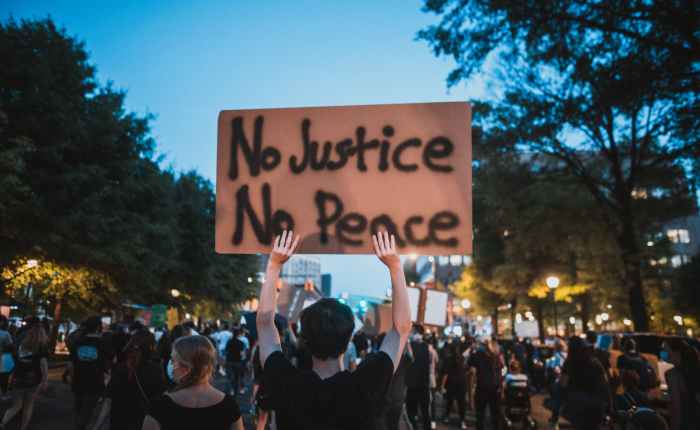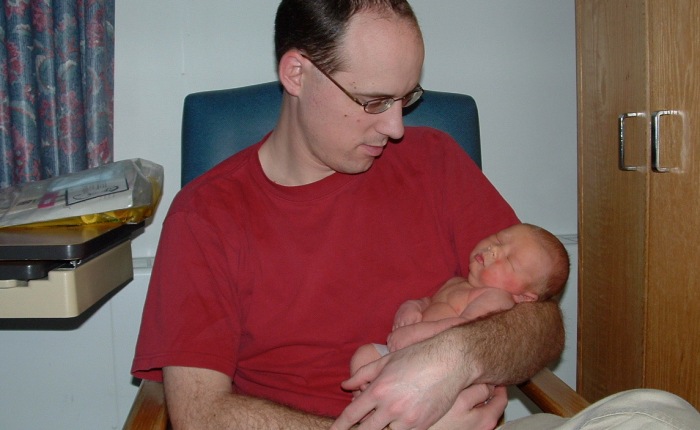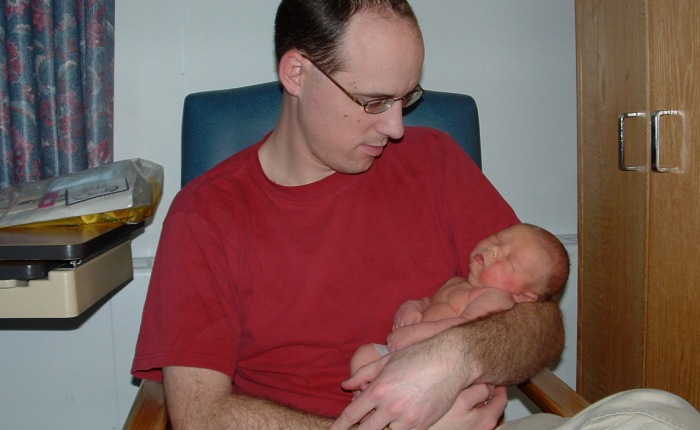Versión Español – espero tenerla listo en una semana
With the recent leak of the potential overturn of Roe v. Wade in the US, the abortion debate has hit a whole new level in the past weeks. It’s front and centre, with anger boiling over on all sides. Some are rejoicing, some are in despair, some are just plain furious. It’s a tense subject – so tense that even trying to pick a picture that represented the topic was stressful, so I went with a picture from a park near our house. It’s a reminder that there’s a lot of beauty in the world, even when dealing with tense subjects.
Part of the challenge in any debate is understanding the perspective of people who do not see the issue the same as you do (or even clearly understanding your own perspective!) This doesn’t always happen well in this debate. The purpose of this post, then, is to present the most common Christian perspective and the reasons behind it. I am not aiming to “convince” people that Christians are right, but to help people understand why this is such an important issue to many Christians. This is a really long post, but I simply don’t believe in simplistic talking points, and this is a major societal issue. Feel free to read it in sections or parts if it’s too long.
Throughout, I refer to the views of “many Christians” (I mostly avoid the more dramatic “most Christians”). There are always going to be exceptions, especially with so many different Christian traditions. I’m from an evangelical tradition, and I suspect some other traditions may not fully agree with my representation of Christian views. But I still feel like I capture the basic teaching of the church through history and in our day and age. So here we go.
- Christianity views human life as sacred. In Genesis 1 it says God created humanity in his own image, and in Genesis 2 it talks about God forming man and breathing the breath of life into him (and then giving life to women as well, although they are to be considered a pair, not one superior to the other). So from the very beginning, humanity is viewed as special, and life as a gift from God. Although God has the right to give or take life, the Bible is quite clear that the taking of life by another human is wrong (with some exceptions, but that’s obviously a whole other topic).
- When does life begin? Many Christians would argue, based on our current scientific understanding, that the clearest beginning point of life would be conception. Simply put, once an egg has been fertilized, it will result in a human being unless there is a “natural” intervention (egg doesn’t implant in the uterus, or is rejected by the body, etc.) or an unnatural one (doctors, accident, etc.). Any other point is a random moment in the development of the process begun at conception. The presence of blood or a heartbeat? The ability to experience pain? Viability outside of the womb? All of these are simply progress points in the development of a human being – similar to progress points after birth such as learning to crawl, then walk, then speak. Many Christians therefore find it confusing and even anti-scientific when pro-choice advocates claim that a fetus is not a person. It’s noteworthy that there is a long-standing philosophical debate about when a person is considered “a person” and worthy of rights. Some place it at the beginning of biological life, some at viability or life outside the womb, some argue that the child has to be conscious and aware of themselves as a person – which might justify killing any infants younger than 15-24 months! This is a major question with significant moral overtones, and many Christians find it easiest and most logical to simply place personhood at the moment that biological life begins – conception.
- The soul. Most Christians believe that each life is an eternal soul. Since we don’t really know of any moment when the soul would be “magically bestowed” upon a person, it makes sense to view the person holistically and assume that the soul also exists from the time of conception, although again, this is a theoretical question. Also, while there’s no clear answer about what happens to children who are killed pre-birth (most believe they go to heaven), most Christians would still hold that it is wrong to kill a person who has been given life and a soul by God, regardless of when that happens.
- Abortion as murder. I’ll admit, this one sounds pretty harsh in our current climate and majority worldview, but it is the logical conclusion of what has come prior. If human life is essentially infinitely valuable and a gift from God, then the taking of that life – even that of a pre-born baby – is, logically, murder. This is how many Christians (and some non-Christians) view the issue, and is one of the reasons why it is such a dramatic, hot-button issue. While some view it as less serious than the murder of someone outside of the womb, many view it as even more egregious, often because the one choosing to make this decision is the one who, in their view, is the one who is supposed to protect that life, not end it. However, Christians must note that given the difference of opinion about whether a pre-born baby is considered a person or not, it is hard to put abortion on the same “level” as any murder law that is presently on the books. Simply put, there is virtually unanimous agreement that killing an 18 or 57 year old woman, or a 6 or 73 year old man is considered murder. There simply is not the same consensus about a baby. This has significant implications both for how we react to people who support, have had, or want to have abortions, as well as how we approach the legality question.
- The abortion itself. While proponents of abortion use soft words or phrases like “remove the pregnancy”, most Christians find the actual process, when studied, quite disturbing, violent, and downright detestable – especially since the fetus looks very much like a person by 8-10 weeks. While perhaps we shouldn’t let looks guide our decisions, when you combine some of the methods (cutting up, sucking out with a vacuum) with the fact that it looks like a person as early as 8-10 weeks (and, we believe, is a person), Christians are understandably horrified. If anything similar was done to a person outside the womb, it would be violently condemned by all. For the Christian, consistency says if it’s horrible out of the womb, it’s also horrible inside the womb since we believe this is a person from the moment of conception.
- Negative social impact. Many Christians feel like abortion has a negative social impact. Part of this is that the ready availability of abortion seems to devalue human life and treat pregnancy as a curse rather than a blessing. It is at least a confusing message when one segment of the population celebrates pregnancy as the arrival of a new life and immediately begins treating the child in the womb as a person while another segment argues that it is just a “thing” that is of no value until it is born. Another reason it is thought to have a negative social impact is because it is seen as one more avenue to “cheapen” sex and relationships. Sex is viewed as a commodity or pleasure, rather than something intended both to build intimacy among a committed couple and to bring life into this world. While most Christians (with some notable exceptions) are fine with contraceptives and family planning, and view sex as pleasurable, we usually believe that sex is intended to be within a marriage, where it can be both safer, build stronger intimacy, and provide a theoretically stable environment for when a pregnancy does happen, rather than outside of marriage with abortion as one more solution to make sex commitment-free. While there could be plenty of argument about how well Christians themselves live up to these ideals, it doesn’t change the belief that abortion frees people up to pursue sex outside of marriage, which we believe has negative effects on families, communities and our society.
- Bodily Autonomy and Women’s Rights. In most places, it seems like this issue is being framed as an issue of women’s rights and bodily autonomy (my body, my choice). This automatically makes out anyone who opposes abortion as anti-woman and oppressive, which I think is both unfortunate and almost irresponsible. It also puts many Christians in an awkward spot as we try to discuss the relationship between multiple rights.
a) Women’s rights – Christianity has had a checkered history with women’s rights. In many cases, Christians have advanced and promoted women’s rights. Especially in the early church, Christianity held a high regard for women, both because of Mary, the mother of Jesus, but also as the first witnesses and even early leaders in the church. Christianity did a lot to protect women and improve their status in society and in the family. In recent years, however, Christianity has come to be seen as patriarchal and oppressive to women. In some cases, that is valid, as men have used certain biblical passages to “lord over” and restrict women instead of promoting the position of women as partners with men – created equal. Part of the challenge arises from what feels like a social move to make men and women “the same” instead of “equal” (the same value, but different). In many cases, what is seen as patriarchal is actually Christians struggling with this, seeing natural differences between the biological sexes that they feel like are being ignored in a quest to make men and women exactly alike. While voiced in a variety of ways (some healthier than others), many Christians see men and women as different, but equal. Many (I hope most) Christians are not against women or women’s rights, but see how those roles play out in society as complex, not simply “we can all do the exact same things all the time equally well”.
b) Value of childbearing – hand in hand with this is an underlying, common attitude that seems to view having children as nothing more than a hindrance to a woman’s path in life. They are an obstacle to be overcome or a necessary nuisance at best, and a downright curse at worst. Since Christians view life as a gift from God, many Christians view the role of motherhood as incredibly valuable, and in some ways almost akin to God. It is the closest role possible to the creation and nurturing of life. While this view definitely sometimes overplays this role and limits or restricts women to exclusively or primarily childrearing, it views the current atmosphere that downplays childbearing and childrearing as negative to both women and society in general. One of the complexities regarding women’s rights is how to value both the unique role of women as those who bring life to this world, but also acknowledging that they have many other gifts and abilities to contribute to society (at the same level of competency as men), and not allowing childbearing to become the only (or only valuable) role of women. Many Christians feel like the promotion of abortion completely devalues the bringing life into this world, and promotes pregnancy/childbearing as a hindrance to a woman’s true value and role, instead of viewing it as a part of many women’s role in life (just as fatherhood should be a valuable part of many men’s lives).
c) Bodily autonomy and the right of the child – many (boy, I sure hope this is most, if not all!!) Christians view the woman as having bodily autonomy, and choice over her actions. However, most Christians also would argue that there is a point where any of our rights need to be restricted, in particular if those rights infringe on the rights of another. So we have the right to drink alcohol, but not the right to drink and drive. We have the right to earn money and have stuff, but not to deceive others and steal from them. In the case of abortion, we believe that women have bodily autonomy to have sex or not have sex, or to be on birth control or not be on birth control (with Catholics being a notable exception). But since we (generally) believe that a baby is a person from the time of conception, once a woman is pregnant, that right is modified because we are now dealing with two people, not just one. Again, the implications of the value of life and the beginning of life are far reaching. Since pregnancy is always a known possibility of the sexual act, many Christians would argue that once a person is pregnant, their bodily autonomy is modified. They have autonomy over their own body, but not the baby’s. While this is presented as a woman’s right’s issue because “the baby is part of the woman’s body”, Christians disagree and say that the baby is not part of the woman’s body, but a separate being, so therefore it is not a strictly bodily autonomy/women’s rights issue.
This is a very different perspective than what is portrayed in the media, and I feel it necessary to add some caveats. First, this view assumes that both the sex and birth control were the woman’s choice. In the horrible situations of rape (including, in my opinion, sabotage of birth control), the woman’s bodily autonomy has definitely been violated, and many Christians would accept abortion as a possibility (see exceptions, below).
Second, Christians would argue that both parents are now responsible for this new life – their rights are modified (in the woman’s case, bodily autonomy, in the man’s case, the “right” to live completely selfishly). Thus the older custom of “shotgun marriages” if a woman got pregnant. The man is just as responsible for this new life as the woman, and should be held just as responsible. Unfortunately, the biology of the matter dictates that the woman cannot run away from the situation in the same way that a man potentially can. While this might be considered “unfair” (and it is, in a manner of speaking), it is a reality that women have to take into account. I’m not even a woman, and I can find this frustrating, so I can understand to some degree how brutally unfair many women would feel this is. But I don’t believe the solution is to give the women a similar “get out of jail” card as to what the man has, but to change our perspective on sex, relationships, childbearing and the miracle of life. The direction we should go should be to make the men take more responsibility, not remove the consequences entirely for both. Obviously, this requires a major shift in our approach to sex and relationships, but I would argue it’s one that would be healthy for our society.
Third, a lot of pro-choice advocates speak of anti-abortion laws as attempts to “control women’s bodies” and their rights, with a special focus on the fact that most legislators are men, and therefore it is men controlling women’s bodies. While there is some sad history behind this, I find it worrisome that this issue is set up as men vs. women, since there are both many women against abortion and many men who are pro-choice. It seems to be a jaded view that forms a narrative of conflict as the only option – we believe that men and women were created equal and are supposed to work together. Many “pro-life” Christians, and I’m sure many legislators (certainly not all!), are just that: pro-life. They are not anti-women. Again, many Christians see the rights of the woman modified (albeit significantly) by the rights of the baby. Most Christians who are anti-abortion do not have in mind the goal of controlling the woman’s body, but the goal of protecting an unborn life, which has the result of affecting the woman. Most are not trying to “control” the woman, but to protect the baby. And again, it should affect the man just as much, but unfortunately many refuse to take on the responsibility that they should. - Exceptions. I believe that a large percentage of Christians would support the most common exceptions usually mentioned – those of rape (clear violation of bodily autonomy, not to mention horrendously traumatizing), incest (I believe this is primarily concern about genetic problems, but also social trauma), and danger to the mother’s life. In these cases, while it might still be “ideally preferable” to avoid abortion, realistically I think most Christians would recognize the significant trauma or danger in these situations, and, trusting in God’s mercy on the child, agree that abortion may be the best of some bad options. Of course, when you start getting into allowing abortion for trauma, it raises the valid question of what level of “trauma” is acceptable to allow for an abortion (financial? familial relationships? others?). This is a very fair question, but I believe many Christians would prefer to limit abortion as much as possible.
- Compassion. Christians have competing reputations. Sometimes they are seen as being angry and judgmental. At other times, they can be perceived as kind and compassionate. Both have some truth to it. Christianity holds that some things are wrong, and therefore it is very easy for Christians to “judge” or criticize people who do those things. On the other hand, the teachings of Jesus call us to love people, show grace, mercy and forgiveness, and to comfort those who are mourning. In relation to the abortion issue, both happen at times. Christians teach the need to do what is right and also the need to show love – but the practice of how they mix those two varies wildly, so I can’t really say “most Christians” do such and such. Here is my approach.
We should always lead with love and compassion. I remember when my wife was pregnant with our first child, and I suddenly realized how drastically our life would change. It scared me. Even though I was 25, was well established in a career, the pregnancy was planned and welcomed, and we had a great relationship and great support, it was still frightening. It gave me a (small) glimpse into how deeply scary pregnancy must be for many women, and with each layer of challenges – financial or educational stress, an unplanned and/or unwanted pregnancy, no partner, no extended support – the feeling of fear and being overwhelmed would grow. Considering those factors, and that many people don’t share Christian convictions about the personhood of the pre-born baby, Christians should show tremendous love, graciousness, comfort, and even support to those who have abortions or are considering them.
I would go even further and say that that grace should extend even to abortion providers. I think that most are not people who believe that they are doing wrong or “committing murder” – many see it framed primarily as a women’s health issue, and therefore view it as a good act. As a Christian I may disagree, but attacking, calling names, holding protests, and being scandalized is hardly going to accomplish anything. I honestly see no value in demonizing people for holding what is essentially a different philosophical viewpoint.
With that in mind, I think the best approach for Christians is to be clear on our perspective, but to do everything possible to support pregnant women (and eventually new moms if they choose to have the baby), to discuss calmly the different perspectives on the beliefs of a pre-born baby, and to support both those who are considering an abortion, and those who have had an abortion. We may rarely be able to encourage anyone to have an abortion, but we don’t have to vilify someone who is likely in a very difficult, emotional spot in life and needs help, and we can even walk with them through the abortion process.
I’ll be honest – many Christians seem to get so focused on whether something is “right” or “wrong” that they completely lose sight of the call for love and compassion. This grieves me deeply, because I don’t believe that it accomplishes much of anything except put up yet another layer of walls between Christians and those we claim that we’re supposed to love. Despite that, I suspect I will have more than one Christian who disagrees with me on this, but I can only call them like I see them, and I think much of the protesting and anger is counterproductive and even contrary to the teachings of Christ.
- Politics and legalities. I believe that many Christians would prefer that abortions be illegal, or at least severely limited, simply because it is as detestable in our eyes to kill an unborn baby as it is to kill any other human being. It’s not an anti-woman belief, it’s a pro-life belief. Again, my point is not to convince you that you should hold this belief, but merely to help you understand it.
That being said, there are some objections that Christians need to consider carefully. The first are the exceptions that I mentioned above – the health of the mother, rape and incest. We want to protect life, but we need to recognize that we don’t live in a perfect world, and exceptions that are very much related to women’s health need to be considered.
An extension of this would be the other ways that having a baby affects women’s health. For example, women who do not have the financial or relational resources to take care of and raise a child, as well as the life-altering decisions that need to be made, such as giving up (or at least pausing) an education or a career, among others. Christians (and politicians) need to recognize that in pushing for the abolishment of abortion, we have done a poor job of considering the broader implications for women. We have become obsessed with right and wrong, and not sought compassionate solutions for legitimate concerns. With that in mind, I do think that if the government is going to limit abortion, they should at the same time dramatically increase support for women in a variety of ways to mitigate many of the reasons that women feel compelled to have an abortion, such as financial/educational issues and the lack of relational support. And if the church/Christians are going to argue for limitations on abortion, they should push for these types of inclusions in the laws and be ready to step in and put their money, time and energy into supporting pregnant women whenever possible and needed, both on an institutional and a personal level. And regardless of the laws that may or may not exist, Christians should be leading the way in showing compassion and finding ways to help those who are struggling with the dynamics of an unwanted or unexpected pregnancy.
One final concern raised is the likelihood of women being persecuted for having an abortion and/or seeking out dangerous (illegal) abortions to get rid of unwanted pregnancies. The potential to save lives by making abortion illegal seems to blind many Christians to this concern. But we should care about all lives, which means if legislation is ever passed to make abortion illegal, it needs to find the delicate balance of making abortion illegal, but not sending a parade of women to jail (focus on abortion providers, perhaps?). I’m not sure what the solution is to this, although if there are multiple avenues for supporting women, as I stated above, perhaps that would help reduce the desperation that many women face when they are faced with an unexpected pregnancy.
Making abortion illegal is a complicated issue. Christians find it unethical to allow and encourage what we see as the killing of millions of babies every year. But it’s also unethical to ignore the plight of many women who feel desperate and don’t have the resources they need to cope with their situation. Laws that don’t take that element into account also fall far short of being good laws. And through it all, regardless of what the law is, Christians should be leading the charge by finding ways to support both life and women.
Conclusion
So that is the briefest summary I could manage of the Christian perspective of a major, major issue in our society. You may agree or disagree with some of these perspectives (even if you’re a Christian), but I hope that it at least is helpful to understand the reasoning of Christians, and why so many find this to be such a significant and even distressing issue.
God bless.
Chris








